
The Cultural Heartbeat of Gwangju: Seo-gu
Seo-gu, located in the vibrant city of Gwangju, South Korea, is a captivating blend of tradition and modernity. Known for its rich cultural heritage and bustling urban landscape, this neighborhood offers a unique experience for every type of traveler. As you stroll through its streets, you'll find a harmonious mix of historic sites, contemporary art spaces, and charming cafes. One of the highlights of Seo-gu is the Gwangju Biennale, an internationally renowned contemporary art exhibition that attracts artists and visitors from around the world. The neighborhood is also home to the Asia Culture Center, a hub for cultural exchange and creativity that showcases performances, exhibitions, and workshops. For those interested in history, the 5.18 Memorial Park is a poignant reminder of South Korea's struggle for democracy, offering a serene space for reflection. Seo-gu's culinary scene is equally impressive, with an array of traditional Korean restaurants, street food stalls, and trendy eateries. Don't miss the opportunity to try Gwangju's famous dishes, such as kimchi and bibimbap, in their authentic settings. The neighborhood's markets, like the Daein Market, are perfect for those looking to immerse themselves in local flavors and crafts. Whether you're an art enthusiast, history buff, or foodie, Seo-gu in Gwangju promises an enriching and unforgettable experience.
Local tips in Seo-gu
- Visit the Gwangju Biennale if your trip coincides with the event; it's a must-see for art lovers.
- Spend some time at the 5.18 Memorial Park to understand the historical significance of Gwangju's democratic movement.
- Try local dishes like kimchi and bibimbap at traditional eateries for an authentic culinary experience.
- Explore Daein Market for unique local crafts and street food.
- Check out the Asia Culture Center for diverse cultural programs and exhibitions.
The Cultural Heartbeat of Gwangju: Seo-gu
Seo-gu, located in the vibrant city of Gwangju, South Korea, is a captivating blend of tradition and modernity. Known for its rich cultural heritage and bustling urban landscape, this neighborhood offers a unique experience for every type of traveler. As you stroll through its streets, you'll find a harmonious mix of historic sites, contemporary art spaces, and charming cafes. One of the highlights of Seo-gu is the Gwangju Biennale, an internationally renowned contemporary art exhibition that attracts artists and visitors from around the world. The neighborhood is also home to the Asia Culture Center, a hub for cultural exchange and creativity that showcases performances, exhibitions, and workshops. For those interested in history, the 5.18 Memorial Park is a poignant reminder of South Korea's struggle for democracy, offering a serene space for reflection. Seo-gu's culinary scene is equally impressive, with an array of traditional Korean restaurants, street food stalls, and trendy eateries. Don't miss the opportunity to try Gwangju's famous dishes, such as kimchi and bibimbap, in their authentic settings. The neighborhood's markets, like the Daein Market, are perfect for those looking to immerse themselves in local flavors and crafts. Whether you're an art enthusiast, history buff, or foodie, Seo-gu in Gwangju promises an enriching and unforgettable experience.
Iconic landmarks you can’t miss
Sajik Park Observatory
Discover breathtaking views and a serene escape at Sajik Park Observatory in Gwangju, a must-visit destination for every traveler.
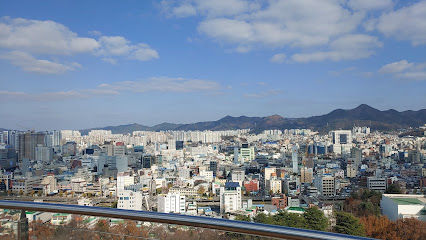
5.18 Democracy Square
Visit 5.18 Democracy Square in Gwangju, Korea, a historical landmark honoring the struggle for democracy with art, monuments, and lush surroundings.
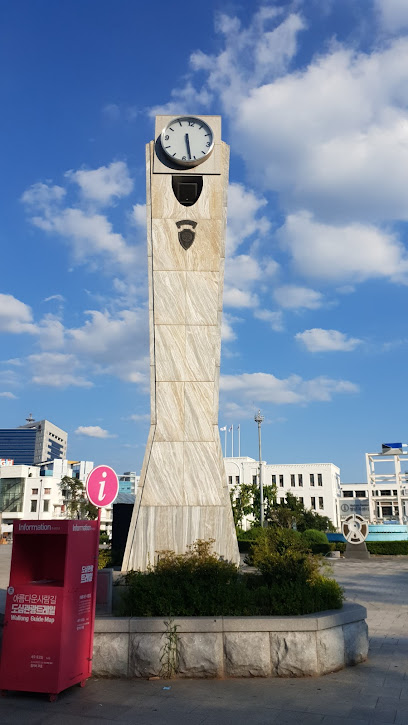
5·18 Memorial Park
Explore the poignant history and serene beauty of 5·18 Memorial Park in Gwangju, a tribute to the brave souls of the Gwangju Uprising.
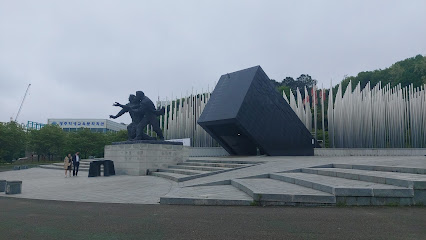
Mugagsa Temple
Explore the serene beauty and spiritual depth of Mugagsa Temple in Gwangju, a captivating Buddhist sanctuary surrounded by nature.
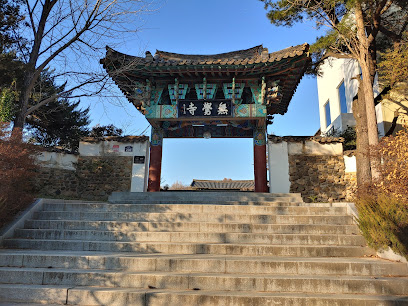
Gwangju Park
Discover the tranquility of Gwangju Park, a lush urban oasis perfect for relaxation, recreation, and cultural experiences in the heart of Gwangju, South Korea.
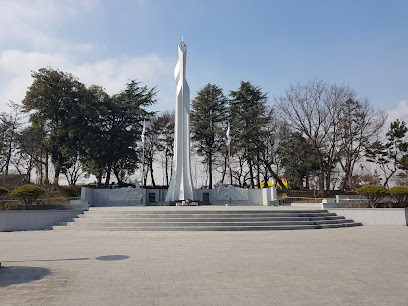
5·18 Liberty Park
Explore 5·18 Liberty Park in Gwangju, a serene memorial park that honors the relentless fight for democracy and human rights in South Korea.
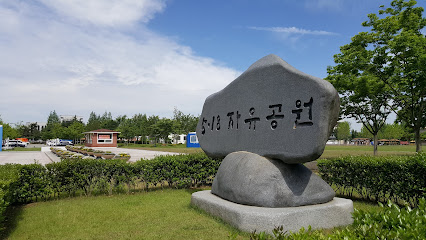
광주 포충사
Explore Gwangju Peace Park, a historical site dedicated to the memory of the Gwangju Uprising and the ongoing fight for democracy and human rights.
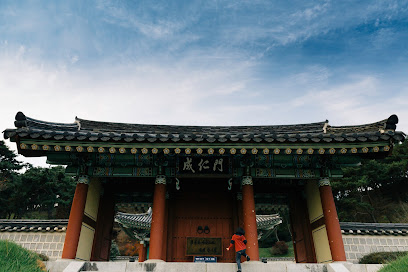
Sangmu Sculpture Park
Explore the harmony of art and nature at Sangmu Sculpture Park in Gwangju, a serene destination for relaxation and inspiration.
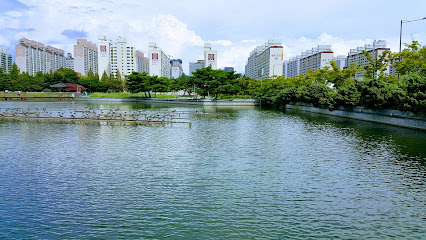
Gwangju Art Street
Explore the vibrant Gwangju Art Street, where creativity meets community in a colorful celebration of local culture and artistry.
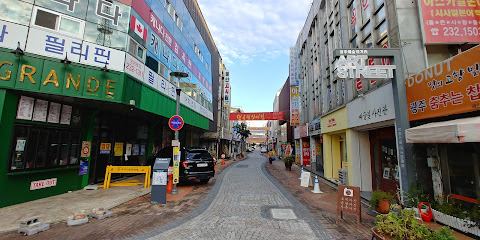
광주 만귀정
Discover Korea's rich cultural heritage at Gwangju National Museum, a historical attraction that brings the past to life through captivating exhibitions.
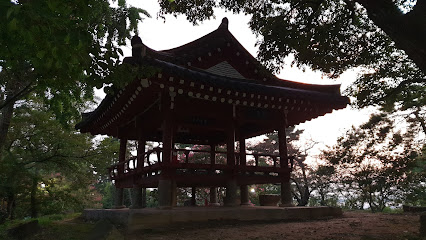
Unmissable attractions to see
Gwangju National Science Museum
Discover the Gwangju National Science Museum, where interactive exhibits and engaging displays inspire curiosity about science and technology for all ages.
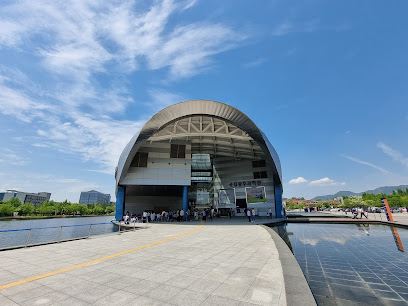
Uncheon Reservoir
Discover the tranquil beauty of Uncheon Reservoir in Gwangju, a perfect escape for nature lovers and outdoor enthusiasts.
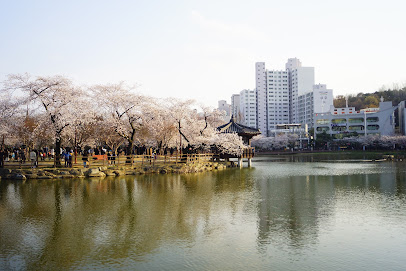
Gwangju National Museum
Discover the artistic and historical treasures of Korea at Gwangju National Museum, a must-visit destination for every traveler.
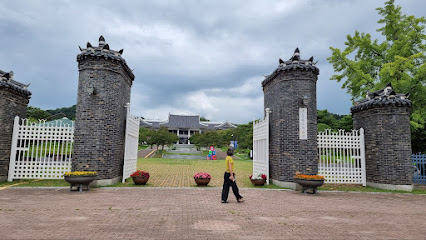
Penguin Village
Explore the enchanting Penguin Village in Gwangju, a whimsical attraction filled with art, colorful shops, and delightful experiences for all ages.
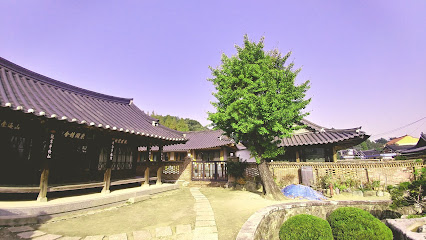
Sajik Park Observatory
Discover breathtaking views at Sajik Park Observatory in Gwangju, a perfect blend of nature and urban beauty for an unforgettable experience.
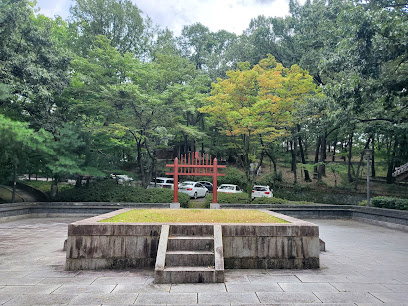
Gwangju Family Land
Discover the endless fun and excitement waiting at Gwangju Family Land, a premier amusement park in the heart of South Korea's vibrant Gwangju.
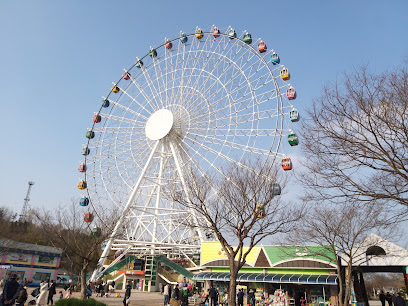
Mugagsa Temple
Experience the serenity of Mugagsa Temple, a Buddhist sanctuary offering tranquility, cultural insight, and a connection to nature in Gwangju, South Korea.
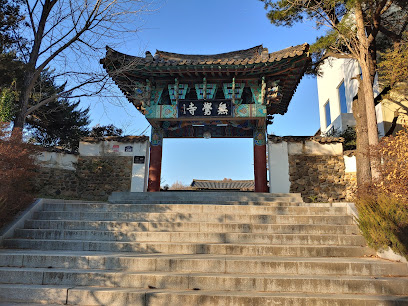
Dongmyeong-dong Café Street
Experience the vibrant ambiance and delightful offerings of Dongmyeong-dong Café Street, a must-visit destination in Gwangju for coffee lovers and culture enthusiasts alike.
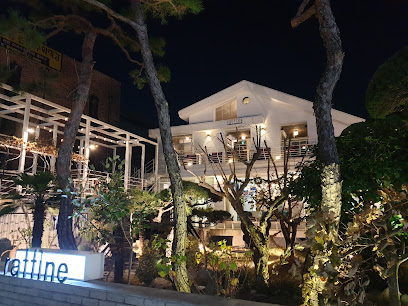
Gwangju Art Street
Discover the vibrant creativity of Gwangju Art Street, where local culture meets contemporary art in a stunning urban landscape.
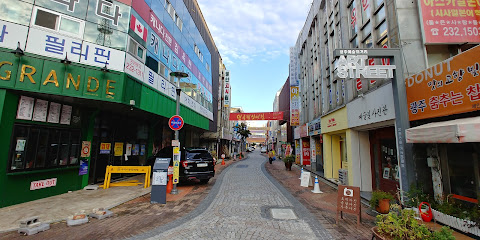
Essential places to dine
Minsokchon
Discover authentic Korean barbecue at Minsokchon in Gwangju - where every bite tells a story of tradition and flavor.
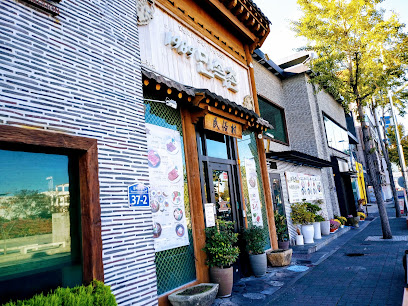
Mac Mun Dong
Experience delightful brunch options at Mac Mun Dong in Gwangju - where culinary artistry meets cozy ambiance.
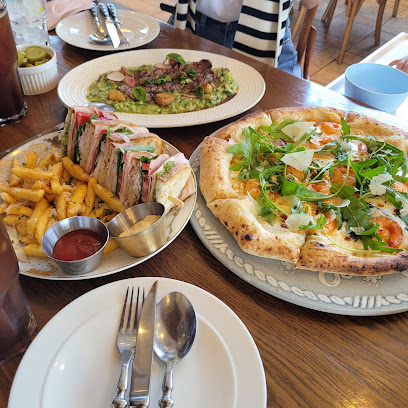
Le Ciel Blue
Discover exquisite flavors at Le Ciel Blue in Gwangju—where local ingredients meet culinary creativity in an inviting setting.
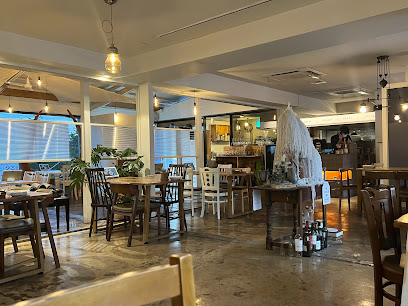
Yujinjeong
Discover Yujinjeong in Gwangju: A top-rated grilled duck restaurant serving delectable dishes in a cozy atmosphere.
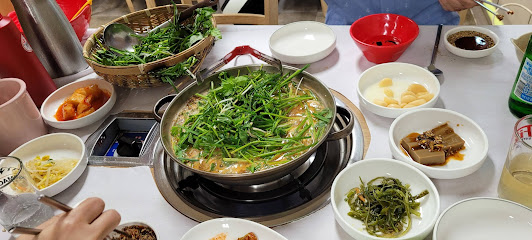
First Nepal Resturant
Experience authentic Nepali cuisine at First Nepal Restaurant in Gwangju - a hidden gem for food lovers seeking unique flavors.
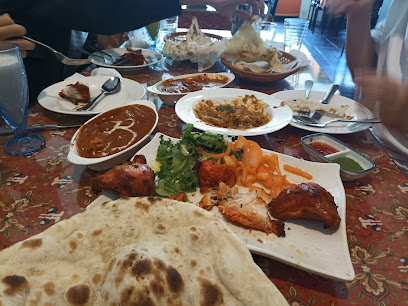
THE MOON
Discover Western culinary delights at The Moon in Gwangju's Seo-gu district – where flavor meets comfort in every bite.
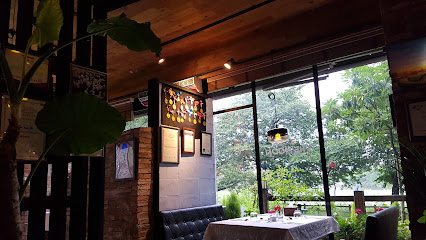
타오레스토랑
Experience authentic Southern Italian cuisine at 타오레스토랑 in Gwangju - where every meal feels like a trip to Italy.
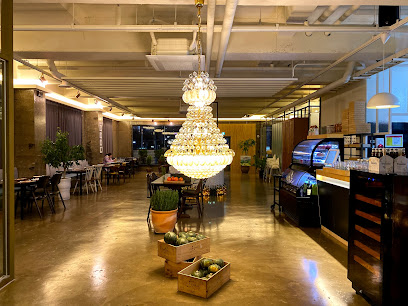
Chinor restaurant halal
Discover the flavors of authentic halal cuisine at Chinor Restaurant in Gwangju's vibrant Gwangsan-gu district.
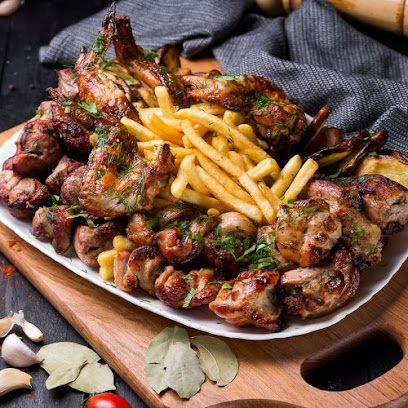
모래시계 레스토랑
Experience an unforgettable buffet feast at 모래시계 레스토랑 in Gwangju – where delicious flavors meet warm hospitality.
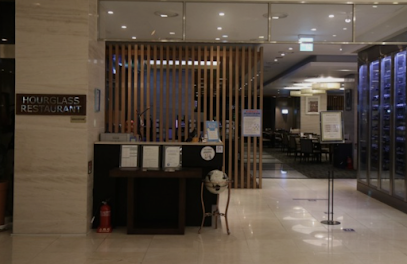
Na Honja Small Octopus
Discover authentic Korean cuisine at Na Honja Small Octopus in Gwangju – where fresh octopus dishes meet warm hospitality.
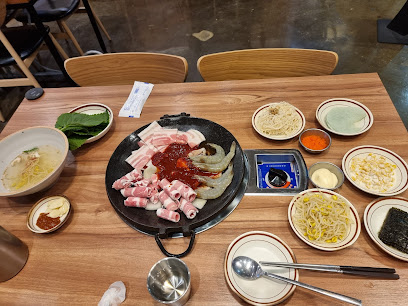
Markets, malls and hidden boutiques
Gwangju Shinsegae Department Store
Discover beauty and luxury at Gwangju Shinsegae Department Store, a premier destination for cosmetics and lifestyle products in South Korea.
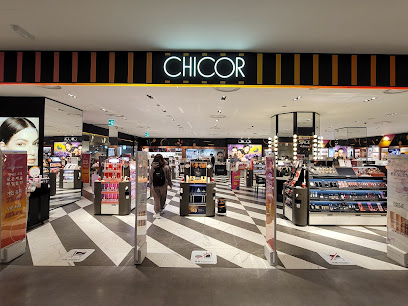
Emart Gwangju
Explore Emart Gwangju, a vibrant hypermarket offering a unique shopping experience filled with local flavors and diverse products in the heart of Seo-gu.
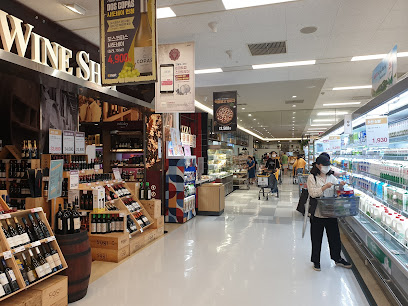
Lotte Department Store, Gwangju Branch
Explore the vibrant shopping scene at Lotte Department Store in Gwangju, where Korean culture meets global brands in a delightful retail experience.
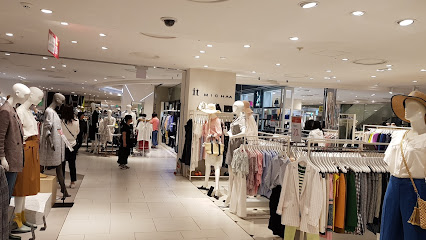
Lotte Outlets Gwangju World Cup
Discover the vibrant shopping scene at Lotte Outlets Gwangju World Cup, where top brands meet unbeatable prices in a modern setting.
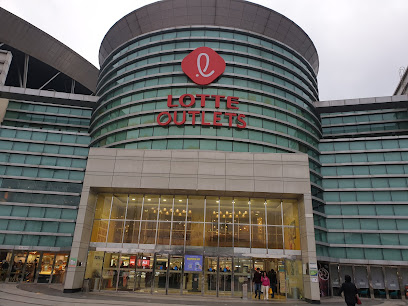
Sejung Outlet
Explore Sejung Outlet in Gwangju for a unique shopping experience, offering diverse brands, discounts, and a taste of vibrant Korean culture.
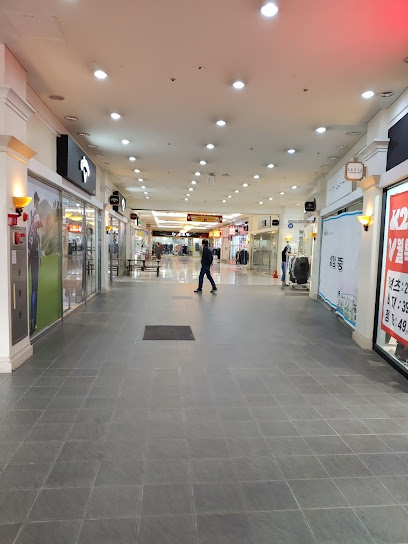
Gwangju Yangdong Market
Experience the vibrant culture of Gwangju at Yangdong Market, where local flavors and handicrafts come alive in a bustling atmosphere.
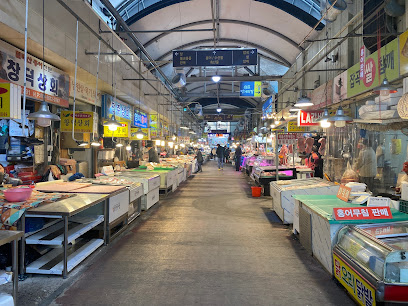
Gwangju Outlet
Explore Gwangju Outlet for amazing deals on fashion, electronics, and more in a modern shopping environment.
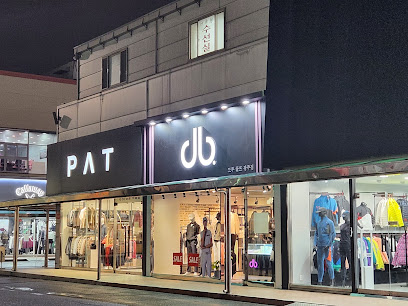
Beautiful Store Gwangju Branch
Explore the heart of Gwangju through unique second-hand finds at Beautiful Store, where every purchase supports social causes.
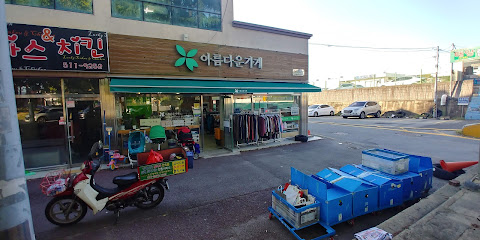
Shinsegae Department Store - Gwangju Branch
Shop and dine in style at Gwangju's premier department store, where luxury meets local culture in an unforgettable experience.
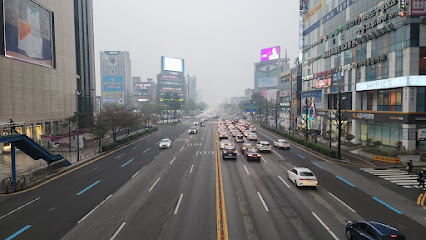
Market
Explore Gwangju's Market: A vibrant shopping destination rich in local flavors, crafts, and cultural experiences that reflect the heart of Korean life.
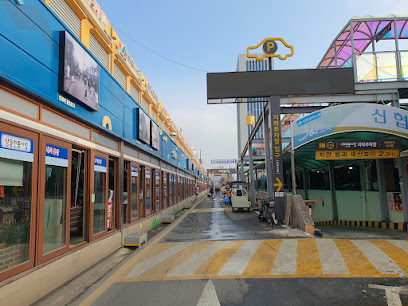
Essential bars & hidden hideouts
리비어밤코
Experience the vibrant nightlife of Gwangju at 리비어밤코, where great drinks and a lively atmosphere await you.
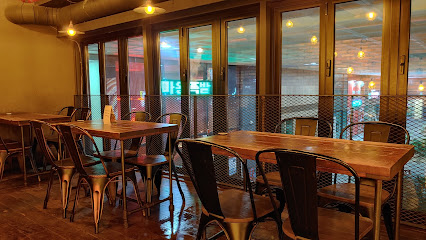
€Asia lounge bar
Discover the essence of Gwangju's nightlife at €Asia Lounge Bar, offering a delightful selection of drinks and a lively atmosphere for all.
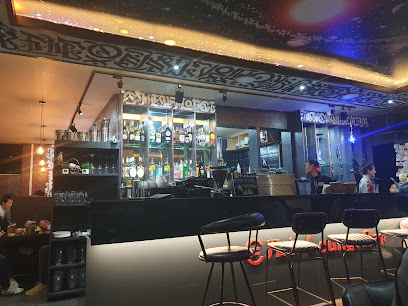
Amble
Experience the vibrant nightlife of Gwangju at Amble, where excellent drinks and a lively atmosphere await every visitor.
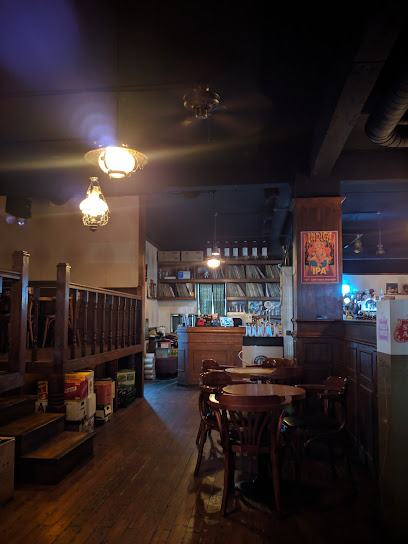
광주 수제맥주
Explore Gwangju 수제맥주, where local craft beer meets a vibrant atmosphere in the heart of Seo-gu.
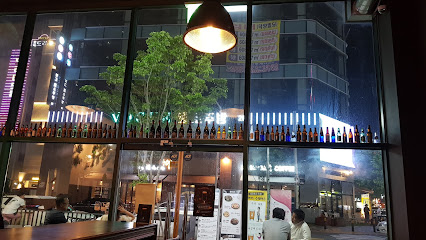
감성맥주집
Experience the vibrant nightlife at 감성맥주집, a trendy bar in Gwangju offering an extensive selection of craft beers and a welcoming atmosphere.
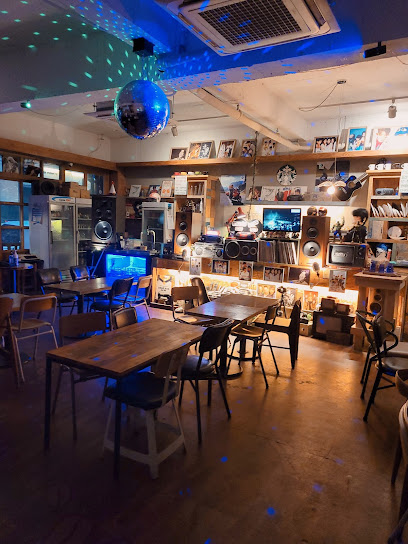
Muae World Beer
Experience the vibrant nightlife of Gwangju at Muae World Beer, where craft beer meets a friendly atmosphere.
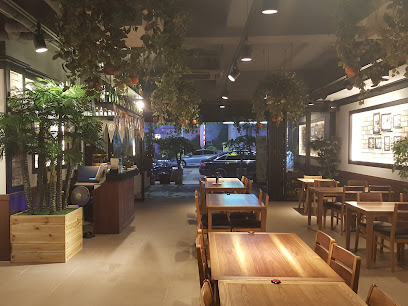
Keibeun
Experience the vibrant nightlife of Gwangju at Keibeun Cocktail Bar, where exceptional cocktails and a chic atmosphere await.
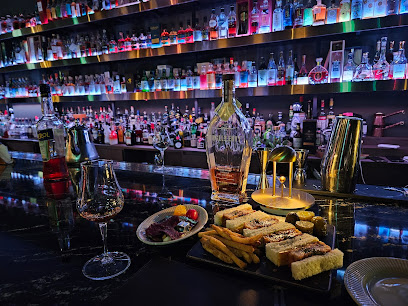
Krim lounge
Explore Krim Lounge in Gwangju for a vibrant cocktail experience, lively atmosphere, and an inclusive nightlife destination.
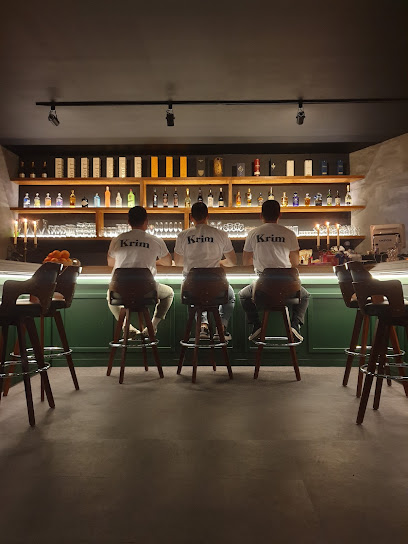
심야식당61
Experience the best of Gwangju's nightlife at 심야식당61, a late-night bar offering delicious food and drinks in a vibrant atmosphere.
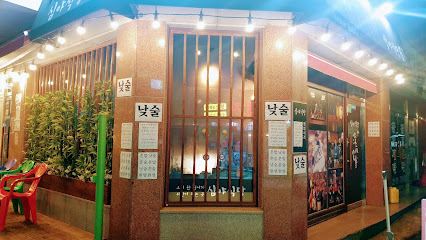
Judolag
Experience the vibrant nightlife of Gwangju at Judolag, a cozy bar offering local drinks and a lively atmosphere to unwind and socialize.

Local Phrases
-
- Hello안녕하세요
[annyeonghaseyo] - Goodbye안녕히 가세요
[annyeonghi gaseyo] - Yes네
[ne] - No아니요
[aniyo] - Please/You're welcome부탁합니다/천만에요
[butakhamnida/cheonmaneyo] - Thank you감사합니다
[gamsahamnida] - Excuse me/Sorry죄송합니다
[joesonghamnida] - How are you?어떻게 지내세요?
[eotteoke jinaeseyo?] - Fine. And you?잘 지내요. 당신은요?
[jal jinaeyo. dangsineunyo?] - Do you speak English?영어를 하십니까?
[yeongeoreul hasimnikka?] - I don't understand이해하지 못해요
[ihaehaji mothaeyo]
- Hello안녕하세요
-
- I'd like to see the menu, please메뉴를 보고 싶어요
[menyureul bogo sipeoyo] - I don't eat meat고기를 먹지 않아요
[gogireul meokji anayo] - Cheers!건배!
[geonbae!] - I would like to pay, please계산하고 싶어요
[gyesanhago sipeoyo]
- I'd like to see the menu, please메뉴를 보고 싶어요
-
- Help!도와주세요!
[dowajuseyo!] - Go away!가라!
[gara!] - Call the Police!경찰을 불러주세요!
[gyeongchareul bulleojuseyo!] - Call a doctor!의사를 불러주세요!
[uisareul bulleojuseyo!] - I'm lost길을 잃었어요
[gireul ilheosseoyo] - I'm ill아프네요
[apneyo]
- Help!도와주세요!
-
- I'd like to buy...사고 싶어요...
[sago sipeoyo...] - I'm just looking둘러보는 중이에요
[dulleoboneun jungieyo] - How much is it?얼마에요?
[eolmaeyo?] - That's too expensive너무 비싸요
[neomu bissayo] - Can you lower the price?가격을 내릴 수 있어요?
[gageogeul naeril su isseoyo?]
- I'd like to buy...사고 싶어요...
-
- What time is it?지금 몇 시에요?
[jigeum myeot sieyo?] - It's one o'clock한 시에요
[han sieyo] - Half past (10)10시 반
[sipshi ban] - Morning아침
[achim] - Afternoon오후
[ohu] - Evening저녁
[jeonyeok] - Yesterday어제
[eoje] - Today오늘
[oneul] - Tomorrow내일
[naeil] - 1일
[il] - 2이
[i] - 3삼
[sam] - 4사
[sa] - 5오
[o] - 6육
[yuk] - 7칠
[chil] - 8팔
[pal] - 9구
[gu] - 10십
[sip]
- What time is it?지금 몇 시에요?
-
- Where's a/the...?...이 어디에 있어요?
[...i eodie isseoyo?] - What's the address?주소가 뭐에요?
[jusoga mwoeyo?] - Can you show me (on the map)?지도로 보여주세요?
[jidoro boyeojuseyo?] - When's the next (bus)?다음 (버스) 언제와요?
[daeum (beoseu) eonjewayo?] - A ticket (to ....)표 (....으로)
[pyo (....euro)]
- Where's a/the...?...이 어디에 있어요?
History of Seo-gu
-
Seo-gu, located in the heart of Gwangju, is a neighborhood rich in history and cultural significance. It has been a pivotal area throughout various historical events in South Korea, particularly during the struggle for democracy in the late 20th century.
-
One of the most critical events in Seo-gu's history is the Gwangju Uprising, which took place in May 1980. The uprising was a response to the oppressive military regime of Chun Doo-hwan and the violent crackdown on democratic protests. Seo-gu served as a central location for many of the protests and demonstrations during this time, with citizens gathering in the area to demand justice and democracy. The uprising was met with brutal force, leading to significant loss of life and injuries.
-
In memory of the victims of the Gwangju Uprising, the May 18th National Cemetery was established in Seo-gu. This site honors those who lost their lives during the pro-democracy movement and serves as a poignant reminder of the sacrifices made for freedom and human rights in South Korea. The cemetery is a place of reflection and remembrance, attracting visitors who wish to pay their respects.
-
Seo-gu has continued to evolve culturally and socially since the uprising. The neighborhood has become a hub for arts and culture, with various galleries, theaters, and cultural festivals. The region is known for its vibrant street art and public installations that reflect the spirit of resilience and hope that emerged from the tragic events of the past.
-
In recent years, Seo-gu has undergone significant urban development aimed at revitalizing the area while preserving its historical significance. New infrastructure projects, parks, and community spaces have been introduced, contributing to a renewed sense of community and engagement among residents. This blend of modernity and history makes Seo-gu a unique neighborhood within Gwangju.
Seo-gu Essentials
-
Seo-gu is easily accessible from other neighborhoods in Gwangju. The Gwangju Metropolitan City Bus system connects various districts, with multiple bus routes passing through Seo-gu. The nearest subway station is Gwangju Songjeong Station, which is part of Line 1. From the station, you can take a local bus or a taxi to reach different parts of Seo-gu. Additionally, Gwangju Airport is located nearby, providing domestic flights and connections to other cities.
-
Seo-gu boasts a well-developed public transport system, including buses and subways. The Gwangju Bus system is efficient, with several routes operating throughout the neighborhood. Bicycles are also popular, with bike rental stations available for visitors. Walking is a viable option for exploring local attractions as many are located within close proximity of each other. Taxis are readily available and provide a convenient way to navigate the area.
-
Seo-gu is generally a safe neighborhood for tourists; however, standard precautions should be exercised. It is advisable to avoid poorly lit areas at night and keep personal belongings secure. Areas with higher crime rates, such as certain parts of downtown, should be approached with caution, especially at night. It's recommended to stay aware of your surroundings and avoid displaying valuables.
-
In case of emergency, dial 119 for fire and medical assistance or 112 for police assistance. Gwangju has several hospitals and clinics, including the Gwangju National University Hospital. It is advisable to have travel insurance that covers medical emergencies. Pharmacies are plentiful and can provide over-the-counter medications for minor health issues.
-
Fashion: Do dress modestly, especially when visiting temples or traditional sites. Don’t wear overly revealing clothing. Religion: Do be respectful of local customs and traditions. Don’t take photos in places where it is prohibited. Public Transport: Do give up your seat for elderly passengers. Don’t talk loudly or engage in disruptive behavior. Greetings: Do greet people with a slight bow or a nod. Don’t use overly casual greetings in formal settings. Eating & Drinking: Do try local dishes and share food with others. Don’t waste food, as it is considered disrespectful.
-
To experience Seo-gu like a local, visit the vibrant markets and street food stalls where you can sample authentic Gwangju cuisine. Engage with local residents, as they are often friendly and eager to share their culture. Don't miss the Gwangju Biennale if you're in town during its run, as it showcases contemporary art and attracts visitors from around the world. Consider taking part in local festivals and events to immerse yourself in the community spirit.
Nearby Cities to Seo-gu
-
Things To Do in Suncheon
-
Things To Do in Mokpo
-
Things To Do in Jeonju
-
Things To Do in Daejeon
-
Things To Do in Daegu
-
Things To Do in Jeju City
-
Things To Do in Busan
-
Things To Do in Ulsan
-
Things To Do in Gyeongju
-
Things To Do in Andong
-
Things To Do in Suwon
-
Things To Do in Pohang
-
Things To Do in Incheon
-
Things To Do in Seoul
-
Things To Do in Chuncheon









